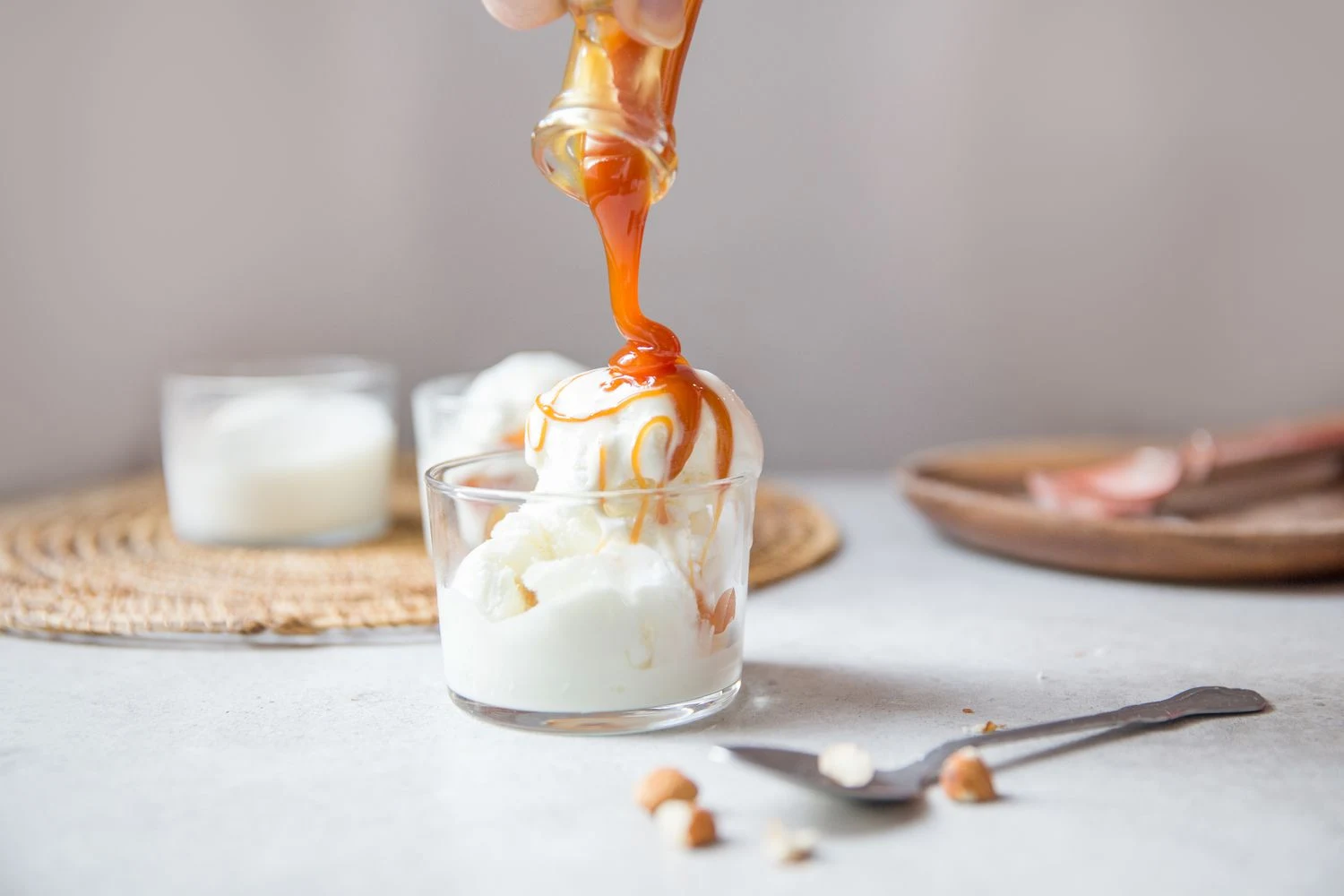Can You Eat Liquid Caramel With Braces?

Liquid caramel can be a better option for individuals with braces compared to traditional sticky or chewy caramel candies. However, you should still exercise caution when consuming it. Here are some tips for eating liquid caramel with braces:
2. Can you eat soft caramel with braces?
3. Does caramel get stuck in braces?
- Choose a soft and smooth consistency: Opt for liquid caramel that is smooth and doesn't have chunks or hard pieces in it. This reduces the risk of damaging your braces or getting caramel stuck in them.
- Be mindful of sugar content: Caramel is typically high in sugar, which can contribute to tooth decay and other dental problems. After consuming liquid caramel, rinse your mouth with water and brush your teeth thoroughly to remove any sugar residue.
- Use a spoon or straw: If you're eating a dessert or treat that includes liquid caramel, consider using a spoon or straw to help you consume it without putting excessive pressure on your braces.
- Check with your orthodontist: It's a good idea to consult your orthodontist or follow their dietary recommendations. They can provide guidance on which foods and treats are safe for your specific type of braces and orthodontic treatment.
Remember that every individual's orthodontic treatment plan and braces are unique. While liquid caramel may be a more manageable option compared to traditional chewy caramel candies, it's still essential to be cautious and follow your orthodontist's advice to ensure the well-being of your braces and overall oral health.
Can I have caramel syrup with braces?
Caramel syrup, which is typically used as a topping or drizzle for desserts, can be a better option for individuals with braces compared to sticky caramel candies. However, you should still exercise caution when consuming caramel syrup with braces. Here are some tips:
- Moderation: While caramel syrup may be less likely to damage your braces compared to chewy caramel candies, it's essential to consume it in moderation. Syrup, like other sugary toppings, can contribute to tooth decay and other dental issues if consumed excessively.
- Rinse and brush: After enjoying a treat with caramel syrup, rinse your mouth with water to help remove any residue. Then, brush your teeth and braces thoroughly to ensure that no sugar or caramel particles are left behind.
- Be mindful of your braces: When consuming caramel syrup, try to avoid biting or putting excessive pressure on your braces. Use a gentle chewing motion, and if possible, avoid using your front teeth for biting into caramel-coated items.
- Consult your orthodontist: If you have concerns about specific foods or toppings while wearing braces, it's always a good idea to consult your orthodontist. They can provide personalized guidance based on your specific orthodontic treatment plan.
While caramel syrup may be a more manageable option compared to chewy caramel candies, it's still essential to be cautious and follow your orthodontist's recommendations to ensure the well-being of your braces and maintain good oral hygiene throughout your orthodontic treatment.
Can you eat soft caramel with braces?
Eating soft caramel with braces can be risky, and it's generally not recommended. While soft caramel is less likely to damage your braces compared to hard or sticky caramel candies, it can still pose some risks. Here's why:
- Stickiness: Even though soft caramel is not as sticky as chewy caramel candies, it can still adhere to your braces, wires, and brackets. This can create a sticky mess and potentially lead to difficulties in cleaning your braces properly.
- Sugar content: Caramel, whether it's soft or chewy, typically contains a high amount of sugar. Consuming sugary foods with braces can increase the risk of tooth decay and other dental problems, as it provides food for harmful bacteria in your mouth.
- Bracket damage: The soft texture of caramel may allow it to wrap around your brackets and wires, increasing the chances of bending or damaging them. This can lead to discomfort and may necessitate additional orthodontic appointments for repairs.
If you really want to enjoy caramel while you have braces, it's essential to do so sparingly and with caution. Cut soft caramel into small, manageable pieces and chew it with your back teeth to minimize the risk of bracket damage. Afterward, rinse your mouth with water and brush your teeth thoroughly to remove any caramel residue.
However, it's generally advisable to limit your consumption of caramel and other sticky or sugary foods during orthodontic treatment. Following your orthodontist's dietary guidelines and maintaining excellent oral hygiene practices are crucial for the success of your treatment and the health of your teeth.
Does caramel get stuck in braces?
Yes, caramel has the potential to get stuck in braces. Caramel is sticky and can easily adhere to the wires and brackets of braces. When caramel gets stuck, it can be challenging to remove, and it may even cause damage to the braces or create an environment where bacteria can thrive, leading to dental problems.
To avoid caramel getting stuck in your braces, it's generally best to avoid eating sticky or chewy caramel candies while you have braces. Instead, opt for softer treats that are less likely to cause issues. If you do indulge in caramel, make sure it's in a form that's less likely to cause problems, such as liquid caramel or caramel sauce.
Remember that following your orthodontist's dietary recommendations and maintaining good oral hygiene practices, like regular brushing and flossing, is crucial to prevent food particles from getting trapped in your braces and to ensure the success of your orthodontic treatment.

All information and articles available on this site are for educational purposes only. The information given here should not be used without any expert advice for the diagnosis or treatment of any health related problem or disease. Always seek the advice of a qualified doctor for medical examination and treatment.
